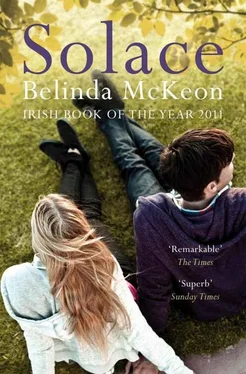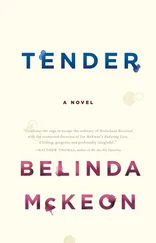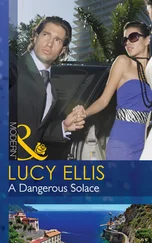‘Rupert is our client. Your mother is suing him—’
Antonia interrupted. ‘Yes, I know all about their little tussle. I read the papers. Or I should say the paper. It hasn’t been reported anywhere other than the Irish Times , I hope?’
‘The Sunday Independent did something last weekend.’
‘Oh, for Christ’s sake.’ Antonia clicked her tongue. ‘Sordid, I suppose?’ She didn’t wait for Joanne to reply, but told her to go on.
‘Ms Lefroy, there are a couple of things I’d like to ask you,’ Joanne said.
‘Such as?’
‘Things to do with your mother, and your brother, family. . history things.’ She winced at her words. At the other end of the line, she heard a clipped laugh.
‘Family history things?’
‘I’m sorry,’ Joanne blustered. She felt a wave of relief that she had waited until the office was empty to make the call. ‘Ms Lefroy, in her testimony, Mrs Lefroy has described her relationship with you as being estranged.’
‘I didn’t read that in the papers.’
‘It hasn’t made it into the papers.’
‘And you’re calling me to see if you can change that, I assume?’
‘I’m not a journalist, Ms Lefroy.’
‘You don’t sound much like a solicitor either, I have to tell you.’
‘I’m a trainee. I’m working on your mother’s case.’
‘My brother’s case, from your perspective, surely.’
Joanne swallowed. ‘Yes.’
‘And what do you want from me?’
‘Well, I was hoping. .’ Joanne stopped. ‘I was hoping you could fill in for us, a little bit, the background to your own. . estrangement. . from your mother. How that came to be the case, and why. What happened, you know.’
‘I see.’
‘I mean, I know it’s very personal information. .’
‘It certainly is.’
‘But I think it’s also essential to the progress of your brother’s case, if we are to represent him fairly.’
Antonia laughed curtly. ‘What makes you think I’m on my brother’s side in all of this? What makes you think I believe Rupert to be the one in the right?’
Joanne hesitated. She had been getting into the swing of things, and now she felt uncertain again. She cleared her throat. ‘I’m sorry, Ms Lefroy,’ she said. ‘It’s just. . with the implication that you and your mother no longer get on—’
‘You assume that I despise her just as much as my brother does. That I have just as great a desire to see her shamed and ruined.’
‘Well, no,’ said Joanne. This woman had just as much talent for melodrama as Paddy Glackin, she thought. The combined force of the two of them in the courtroom would be too much to bear.
‘Do you have a mother, Miss Lynch?’
Joanne stammered. ‘Do I?’
‘Of course you do,’ Antonia broke in impatiently. ‘You sound about eighteen years old. You probably still live with your mother.’
‘No, I don’t,’ Joanne said, more sharply than she had intended.
‘So you are estranged from her.’
‘I’m sorry?’
‘You no longer live in the same house as your mother. Therefore you and she must be estranged. Am I correct?’
Joanne frowned. ‘I don’t think. .’ she said, but then she couldn’t find anything else to say. ‘I don’t think so,’ she said after a moment.
‘Because you see, Miss Lynch, from my mother’s point of view, that is all it takes to become estranged. The mere fact of geographical distance between us, and of lives lived separately — of a life, on my part, lived on my own terms — that is enough to constitute an estrangement. That is why she describes us as estranged. Do you know how many years I spent living in the house on Fitzwilliam Square?’
‘No,’ Joanne said. ‘We don’t know anything about you, actually. That’s kind of the point.’
‘Thirty-nine.’
‘You’re thirty-nine?’
A long pause confirmed the error that Joanne already knew she had made. ‘I’m sorry,’ she said. ‘I mean. .’
‘Flattery may get you everywhere in your chosen profession,’ Antonia said, ‘but no. I am not thirty-nine. I am well past it. What I said is that I lived in my mother’s house, with my mother, for thirty-nine years.’
‘Oh,’ Joanne said. She wrote 39 in her notebook and circled it twice. Not age , she added, and immediately put a line through it. ‘I’m sorry,’ she said again.
‘Sorry for what? Don’t be sorry for me. I’ve been out of Dublin ten years now. My life has never been better. I’ve lived in London, and now I’m in New York, and I’m doing what I want to do. And I’m still in touch with my mother. Has she told you that? I’m still in touch with her very regularly, in fact.’
‘She hasn’t said anything about you.’
‘Well, there’s a reason for that. My mother has not forgiven me.’
‘For moving away?’
‘For moving out of her house,’ Antonia said. ‘My mother was used to having me in that house with her. To cook for her, and clean for her, and keep the place going for her, like some kind of Victorian maid. And now that I’m no longer where she liked me to be, my mother prefers to pretend that I was never there. That I never existed. And yet I still visit her at least once a year. Which is more than my brother did when he was living abroad. It was only when his money ran out that he decided to do that.’
‘Sure,’ Joanne said, and circled some more random words on her notepad. ‘I’m sure everything that’s happening between them must be difficult for you.’
‘Not particularly,’ said Antonia. ‘I left Ireland to make my own life. I had to become immune to caring about certain things.’ She sighed. ‘But I’m afraid I still don’t know why you called me. Would you be so good as to tell me? What is it, exactly, that you wish to find out about my brother? Do you even know the answer to that question yourself?’
Joanne did not respond.
‘Well, let me help you,’ Antonia said. ‘Let me tell you, first of all, that my brother is a compulsive liar. You probably know that already.’
‘Well. .’
‘Of course you do, you’re representing him. But let me tell you something even more complicating — which is not going to help you, I’m afraid. Not only is my brother a compulsive liar, and a consummate one, but he learned how to lie from my mother. She will tell you that black is white, and he’ll tell you white is brown. Are you beginning to understand me?’
‘I think so,’ Joanne said slowly, though that was not quite true.
‘Good. Then what you’re beginning to understand, Miss Lynch, is that representing my brother is about as easy a task as it would be to represent my mother.’
‘I see.’
‘So good luck with it. And, please, don’t call me again. I have nothing to tell you. My mother may say that she is not in touch with me, but she is, and I don’t trouble myself to think about her reasons for saying otherwise. I don’t see myself as estranged. I see myself as away.’
With a dignified click, she hung up. Joanne stared at the phone. She was not sure what had happened. She glanced again at the useless notes she had taken. Her heart was thumping. Imelda would be back from lunch any minute, and she would see all this as dynamite: how Elizabeth had treated her daughter, how domineering and selfish she had been as a mother, how she had refused to let her children build lives of their own. Imelda would bring it to their barrister, Linda O’Halloran, as further ammunition for Rupert’s case, for the argument that his mother was merely bitter at his display of independence, merely jealous of the success he had made of the mews house, all on his own. And then there was the detail about Elizabeth being a consummate liar. The second part of that detail — the part about Rupert being a talented liar too — Imelda would ignore: it was irrelevant for the purposes of their defence, she would say. But Elizabeth’s lying: that, Imelda and O’Halloran would whip up into a savage attack on the old woman’s character — on her unreliability — on her claims to have been a good mother, a mother who wanted only honesty and decency from her son. If Elizabeth Lefroy could not act honestly herself, O’Halloran would address the courtroom, on what basis could they attach so much as a shred of credibility to her accusations about her son? It was all there. It lay sparkling on a platter, waiting to be snatched up and thrown. Once again, Joanne imagined Elizabeth on the witness stand, her eyes dark, her posture defiant, her chin held high. The jet beads at her throat.
Читать дальше












